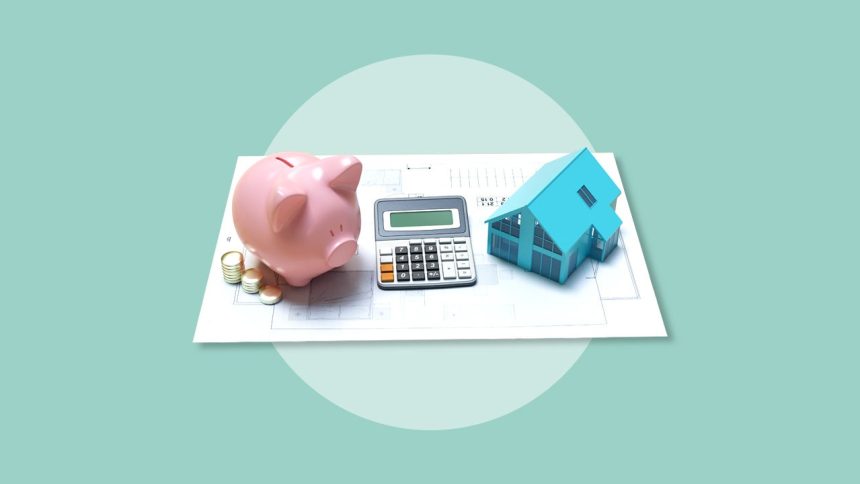AlessandroPhoto/ Getty Images; Illustration by Austin Courregé/Bankrate
Key takeaways
- Credit-building products, such as credit builder loans and secured credit cards, can help individuals with limited credit histories or poor credit rebuild their credit.
- Credit-building apps can also be helpful tools for improving credit, providing services such as credit tracking and education.
- It’s important to carefully consider your options and choose the best credit-building tool for your needs and financial situation.
If your credit score is low or you don’t have a score, a credit-builder loan may help boost your score or establish a credit history. Learn how different types of credit-building products and services work to help you choose which one is best for you.
Credit-building products to help boost your score
Credit-building products give you a chance to prove to lenders you can manage debt. You typically borrow a small amount and make payments that are reported to credit bureaus to develop a credit history. They are easier to get approved for than traditional credit cards or loan products.
However, the interest rates are often higher with shorter repayment terms, which can make the payments tough to handle. Some options require you to use your money upfront or wait to access the credit until you’ve made several payments on time.
The most common credit-building products are credit-builder loans, small-dollar loans, secured credit cards and credit-building apps. Picking the right product could put you on the path to qualifying low personal loan rates in the future.
Credit builder loan
Credit-building loans require you to make a portion of or all of the monthly payments before you receive any funds. If approved, the lender deposits the loan amount into a secured savings account. Each payment is reported to at least one of the three credit bureaus, which helps build your credit history and, ideally, your credit score.
Once you make a set number of payments, the lender may release some or all of the funds to you after subtracting any interest charges or fees. You’re usually limited to borrowing between $300 and $1,000, although some lenders may set limits as high as $3,000.
In most cases, the repayment term is between 12 and 36 months, though some lenders offer terms up to 60 months.
Who it’s best for:
Credit-building loans are best if you have little to no credit history and don’t need the loan funds immediately.
Small dollar loan
As part of the Consumer Protection Act, the small dollar loan program (SDLP) provides a cheaper alternative to bad credit loans, payday lending and check-cashing companies. One of the other benefits of a small dollar loan is that they must be reported to at least one credit bureau, they can also be a tool for building credit.
Small-dollar loans must meet the following standards:
- Be no more than $2,500.
- Be repaid in installments.
- Have no prepayment penalties.
- Be reported to at least one of the three credit bureaus.
- The APR cannot exceed 36 percent.
- Meet any other affordability requirements as required by the financial institution.
You can get a small dollar loan at select national and community banks and local credit unions. These loans operate similarly to traditional loans in that you pay the lump sum balance back in installments. The fees are typically charged as a flat fee based on how much you borrow.
Who it’s best for:
Small-dollar loans are best for borrowers who have little to no credit and need a smaller loan amount and want to avoid a high-cost payday loan.
Secured credit cards
A secured credit card is a credit card for which your own money serves as collateral. You give the lender cash in the amount you want to secure, and the lender grants you that much credit.
For example, to get a $200 secured credit card, you’d transfer $200 from your funds to the secured credit card lender. The lender would then give you $200 worth of credit, which can be used just like a regular credit card.
Interest rates and fees are often very high, but your payments and balance are reported to the credit bureaus, helping you to establish a payment history. Secured credit cards are often easier to qualify for than regular credit cards because you effectively give the lender the cash that they then lend to you.
This can also help you improve or establish your credit utilization ratio, which measures how much of your available revolving credit is used. If you keep your credit use exceptionally low or pay the balance off completely each month, you can see a significant uptick in your credit scores.
Who it’s best for:
Borrowers who have extra cash to set up a credit account and want to establish a history of paying on a revolving credit line.
Credit-building apps
Credit-building apps exist to help you build your credit. Some apps provide credit tracking services, while others provide educational resources to help you build — and maintain — your credit.
You’ll generally come across three types of apps:
- Credit monitoring services that offer suggestions on how to improve your score.
- Credit-building lenders which offer credit-builder and small dollar loans.
- Credit reporting services that help boost your credit through alternative reporting.
Who it’s best for:
Borrowers who are comfortable with using a mobile app and those who are looking for a comprehensive approach to improving their credit.
Pros and cons of credit-building products
Just like every other financial tool, there are downsides to be aware of when it comes to credit-building products. Knowing the advantages and disadvantages of credit-building products can help you determine the best fit for your credit improvement goals.
Pros
- Easier to get approved for than other credit products.
- Can help you build your credit history and improve your score.
- May help you establish a credit score if you don’t have one.
- A better score may lead to lower rates and terms in the future.
Cons
- May require upfront cash or a proven payment history before you get funds.
- Most products have small loan or credit limits.
- Short terms and high rates may make the payment unaffordable.
Best practices to build credit
- Pay your bills on time. Regardless of the type of credit-builder loan you take out, your credit score will drop if you don’t make payments on time. Keep on top of them by scheduling reminders or using autopay.
- Keep your credit card balances low. Besides paying late, the fastest way to weaken your credit scores is to max out revolving debt like credit cards. Generally, avoid using more than 30 percent of your available credit. For example, if you can access $1,000 worth of total credit, don’t use more than $300 in any billing cycle.
- Research alternative credit reporting options. You can add on-time household bills or subscription services you use regularly to your credit report to improve your score. For example, Experian Boost allows you to add up to two years of payment history for utility bills or streaming services to your credit report, which could help increase your scores.
- Find a co-signer. Some creditors allow you to add someone else’s credit and income as a co-signer to help you qualify for a new account. They’ll be on the hook for the account if you can’t repay it, so make sure everyone understands the responsibilities before you choose this option.
- Ask to be an authorized user. Ask a parent or relative if you could be added as an authorized user. This is a common way for teenagers or college students to generate a credit score. Ensure you discuss the rules for using the card to avoid misunderstandings, especially because mishandling the account will affect both of you.
The bottom line
Several financial products, including credit-builder loans and secured credit cards, can help you build or re-establish credit. The best one for you will depend on your unique financial situation.
For example, a secured credit card might be an ideal choice to establish credit using a revolving credit line. However, if you do not want a credit card, it may make more sense to consider taking out a small-dollar or credit-builder loan.
Regardless of your choice, repay the loan on time to ensure you build credit. Missing a payment could harm your credit score and take you further from your goals.
Read the full article here
















